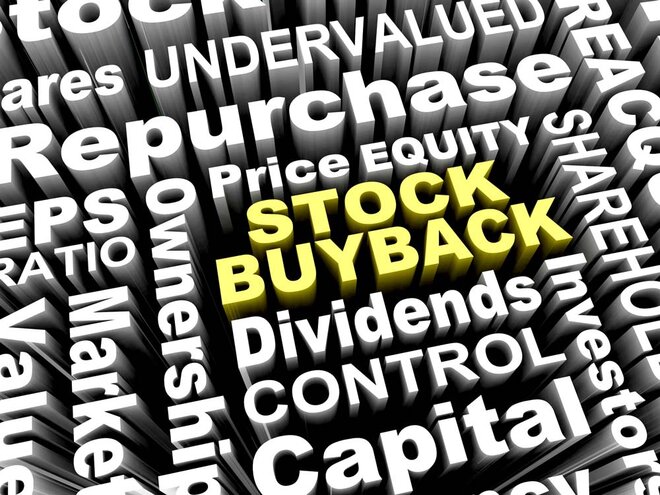
There is this inherent belief that a buyback scheme is always a good thing for investors. It sends a message that the company is doing well. But a number of factors determine whether or not a buyback will create value for the remaining shareholders.
Busting the myth
Buffett says, "The motivation for a buyback used to be just because companies thought their shares were cheap. Thirty or forty years ago, it was very fertile to invest in companies that were buying back their stock... But that's being swamped today by companies doing it because it's in fashion or to prop up the stock... We wouldn't do it for those reasons." (Berkshire Annual Meeting, 2006).
Right time for buyback
In his 1999 Annual Letter, Buffett first considered a buyback. "There is only one combination of facts that makes it advisable for a company to repurchase its shares: First, the company has available funds - cash plus sensible borrowing capacity - beyond the near-term needs of the business and, second, finds its stock selling in the market below its intrinsic value, conservatively calculated. When available funds exceed needs of those kinds, a company with a growth-oriented shareholder population can buy new businesses or repurchase shares. If a company's stock is selling well below its intrinsic value, repurchases usually make the most sense."
At what price?
The buyback price determines whether the buyback will eventually create value for the remaining shareholders. While logic holds that companies would go in for buybacks only when their stock prices are well below their intrinsic values, that has not always been the case. Says Buffett, "90 per cent of repurchases in the last 5 years were at silly prices and not in the interest of shareholders. Managers did it because everyone else was doing it. It's interesting how many companies bought at two times current prices that aren't [buying] now." (Berkshire Annual Meeting, 2009).
This behaviour is not a new phenomenon today. Back in 2000, when Buffett was considering his first buyback, he had observed in his Annual Letter, "Now, repurchases are all the rage, but are all too often made for an unstated and, in our view, ignoble reason: to pump or support the stock price. The shareholder who chooses to sell today, of course, is benefited by any buyer, whatever his origin or motives. But the continuing shareholder is penalised by repurchases above the intrinsic value. Buying dollar bills for $1.10 is not good business for those who stick around... It appears to us that many companies now making repurchases are overpaying departing shareholders at the expense of those who stay. In defense of those companies, I would say that it is natural for CEOs to be optimistic about their own businesses. They also know a whole lot more than I do. However, I can't help but feel that too often today's repurchases are dictated by management's desire to 'show confidence' or be in fashion rather than by a desire to enhance per-share value."
Buffett, it consequently follows, will not pay over the intrinsic value for re-purchase of Berkshire shares. In the 2011 re-purchase programme, the first in his four decades at Berkshire, he offered up to 120 per cent of the book value as the buyback.When he announced the buyback, the market largely acknowledged that Berkshire price was down to attractive levels.








